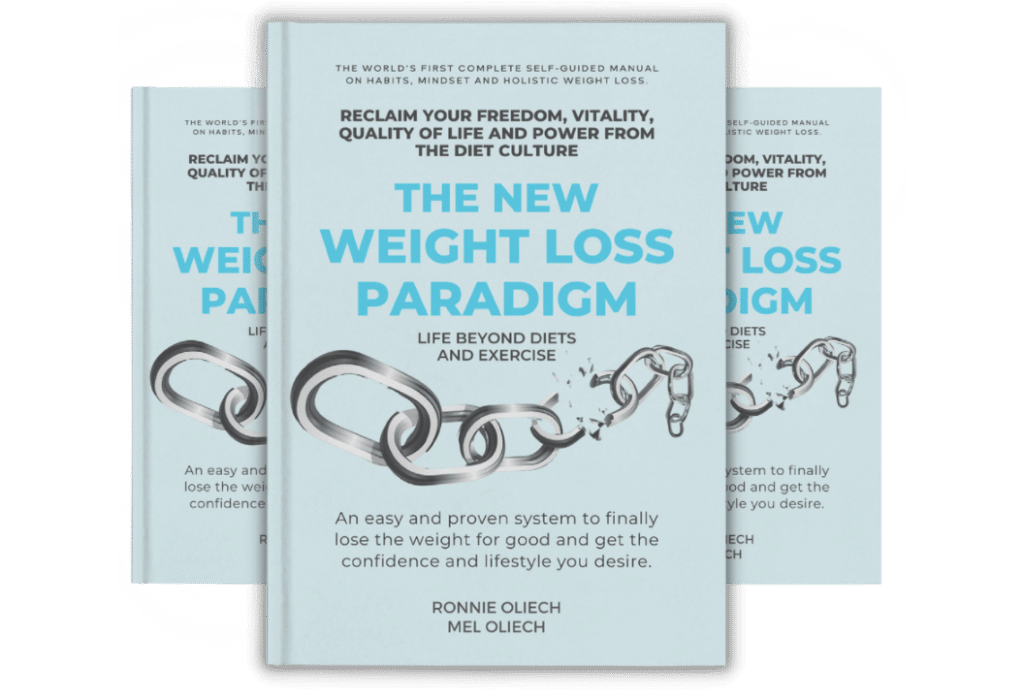Do you believe that that only way to lose weight is to get everything ‘right’?
Do you think that you’ll continue to struggle with your weight because you can’t be perfect all the time?
For a long time, the weight loss industry has led us to believe that we must be perfect in order to lose weight.
You know, eat perfectly and exercise perfectly — whatever that means.
But we’re here to show you that a year of imperfection is actually better than 6 weeks of perfection.
Perfection is an illusion
When it comes to weight loss, perfectionism is one of the biggest factors that will hold you back.
That’s because perfectionism is an illusion. Nothing goes to plan all the time. Life is always going to throw a curve ball in your direction — whether it’s being extra busy at work, caring for elderly parents, looking after sick children, being sick yourself, or even a global pandemic!
All of these factors, which are well out of your control, can impact your weight loss journey. Some weeks, you may be time poor and unable to devote as much time to exercise or weekly meal prep as you’d like. Other weeks, your sleep may be compromised and your energy may be lower than usual. Extra stress caused by these events can also increase the likelihood of you engaging in emotional eating, or using alcohol as a coping mechanism.
Trying to be perfect with your weight loss journey amidst all of this is impossible and will only make it even more difficult to lose weight.
Here’s why.
What happens when you try to be perfect?
As we’ve mentioned, it’s impossible to be perfect. Yet many 6- and 12-week challenges promote the idea that you can get fabulous results if you religiously follow the plan to the letter.
Of course, in the beginning motivation is high and it may be relatively easy to stay on track. But when life unexpectedly throws up a hurdle, which it will, the pressure to be perfect can have one of two outcomes:
- People give up because it’s just too hard to keep going
- People (especially perfectionists), grit their teeth, continue to aim for perfection, and cause a great deal of stress and anxiety for themselves — which ends up backfiring on them anyway. You can read more about stress’s effect on weight loss in our blog How stress and weight gain are linked.
Why imperfection trumps perfection
Given that we’re all human and none of us can be perfect, it makes sense that our best will vary from day to day, according to what is going on in our life. Some days we’ll be able to give 100%. Other days may be 70% and others may be as little as 2%. Not being able to give 100% each day doesn’t matter, as long as you do your best each day.
Small steps add up to big results
To successfully lose weight and keep it off, it’s important to understand that doing your best is preferable than aiming for perfection. That’s because those who aim for perfection often have an ‘all or nothing’ mindset, which means that if they can’t be perfect, they do nothing instead. But small steps added up over time, can be more powerful than a couple of weeks of perfection.
In fact, if you focus on improving by just 1% every day for a whole year, you’ll end up 37 times better over that time. Imagine being 37 times better at food prepping, dealing with emotional eating, managing stress, or training effectively. We explain this in more detail in our blog The snowball effect: Why small things add up to big weight loss.
You’ll be less stressed
Even if you are training effectively and eating great there are some factors that will impact your ability to lose weight. These are known as metabolic blockers and stress is one of the biggest ones.
Trying to be perfect because you have a short amount of time to get your results (i.e. a 6- or 12-week challenge) will cause enormous amounts of stress that will impact your sleep (poor sleep is another metabolic blocker), and may increase the chances of turning to food or alcohol (another metabolic blocker) in order to cope.
Reducing stress, by aiming to do your best on any given day, instead of trying to be perfect will yield you better results in the long run.
You’re less likely to give up
As we mentioned, the stress and pressure of trying to be perfect will take its toll. You’ll either give up because it’s too hard and overwhelming, or you’ll end up burning out and be unable to continue, even if you wanted to. Understanding that you don’t need to be perfect will mean that you’ll reduce the pressure you’re putting on yourself which will make it easier to stick with your weight loss journey.
You’ll be more consistent
Being consistent is more important for weight loss than intensity. Only allowing yourself 6 weeks to get into shape means that you have to go hard all of that time. What most people do in these circumstances is to cut back on calories, restrict food or eliminate food groups completely, and ramp up their exercise. However, this will only lead to injury or burnt out. In addition, this approach is not sustainable long-term so when the 6 weeks is up, people ‘come off the diet’, if they haven’t already fallen off the wagon completely, and go back to doing what they were doing before they started the challenge. Of course, this means that any weight that was lost during this time will be gained back (perhaps with interest). Then, when this person wants to lose weight again, they will take the same approach and repeat.
On the other hand, doing less and focusing on one thing at a time, means that you’ll make consistent progress, even if it seems small. (Remember, small things snowball into big things). It’s far better to do smaller things more regularly, than doing too much and becoming overwhelmed and giving up. Because consistency trumps intensity every time.
You won’t need motivation and willpower
Many people who are working to lose weight talk about needing ‘motivation and willpower’. However, these commodities are limited supply — once they’re gone, they’re gone, which is why a lot of people lose their mojo after a couple of weeks. However, focusing on small things is easy to do because you don’t need motivation to do them.
For example, how motivated would you need to feel if you knew you had to walk 5km every single day to get results? Would you find it hard? Would you give up? Would this likely end in an injury? Now think about how hard it would be to walk 2km, twice a week. Is that more doable and less daunting? Of course it is!
Over the course of 6 weeks, we guarantee that you’ll be more consistent with walking if you aim for 2 x 2km walks a week, than 7 x 5km walks. Once again, another example of consistency trumping intensity.
You don’t need to be perfect to get results. You just need to be consistent. And aiming for consistency, rather than perfection means you don’t need to rely on willpower.
You’ll enjoy the journey
How much fun is it to forgo your favourite foods, exercise like a demon and try to get everything ‘perfect’? Not much at all, which is why all diets eventually come to an end. They’re just not sustainable and end up making you miserable and more overweight. To put it bluntly, diets suck!
Aiming to be consistent, focusing on small changes and forgetting about perfection makes room for the inevitable ebbs and flows life throws your way. None of us do well when we feel overwhelmed. At Imani Tribe Transformations, we break our program up into supported periods and “off-seasons” where you take a break and consolidate your new habits and mindsets before starting the next program. Rather than prescribe you short-term fixes, we provide you with the knowledge, skills and tools that will help you through your worst days – not just your best days.
That means that there is no need to be perfect. You only have to do your best, whatever that may be. Taking the pressure off, and learning that all progress is progress, no matter how small, means that you’ll enjoy your weight loss journey, and won’t look at it as something that must be endured and then ended when you reach your goal.
You’ll change your habits
The truth is that the best diet and the best exercise program won’t help you lose weight unless you change your habits. The biggest influence over your weight isn’t what you eat, or how much you exercise. It’s why you eat what you do and move how you do. And that comes down to your habits. Your habits are your thoughts, beliefs, mindset and behaviours.
All of us have habits that prevent us from losing weight and keeping it off. And while it’s possible to overcome these habits, it does take time — certainly more than 6 weeks. In fact, some habits can take 1-2 years to overcome. Even if you are able to be ‘perfect’ for 6 weeks, and manage to get amazing physical results, you will not be able to keep them if you don’t change your habits.
We understand the power of habits which is why our Diet Antidote Transformation System (DATSTM Program) is fully personalised and designed to help you change your habits that have led you to become overweight and unhappy. Our program is a full 12-month program designed to give you the time you need to transform your mindset and embed new habits that will last a lifetime.
You can read more about habits in our following blogs:
What’s a keystone habit and why do you have to focus on it to get results
Changing habits: it’s not what you do, but why you do it
Weight loss transformation is about ‘unbecoming’ and ‘unlearning’ not changing who you are
If you’re ready to let go of the pressure of perfectionism, and learn a new, more relaxed, more enjoyable and more effective way to lose weight, we want to hear from you.


















